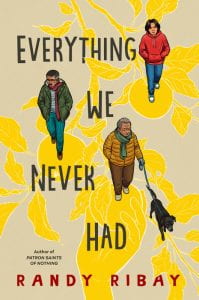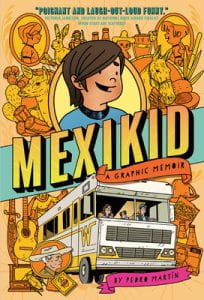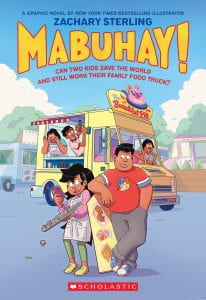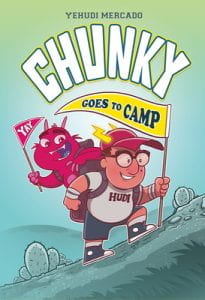 Ribay, Randy. Everything We Never Had. Kokila, 2024. 978-0-593-46141-9. $18.99. 288 p. Grades 8–12.
Ribay, Randy. Everything We Never Had. Kokila, 2024. 978-0-593-46141-9. $18.99. 288 p. Grades 8–12.
Randy Ribay’s most recent novel, weaves together an emotional story that spans four generations of Filipino American boys. Told through alternating times and perspectives spanning Philadelphia in 2020, Denver in 1983, Stockton in 1965, and Watsonville in 1930, readers see the violence and inequities that the Maghabol men have faced as well as seeing the familial relationships between the generations.
THOUGHTS: This novel gives readers a look at some of the hardships and racial charged events that Filipino Americans have faced (and continue to face) throughout the years. It shows the intricacies of familial relationships and how they can be strained through the years, how different generations have different values. There is some mature language throughout the book.
Historical Fiction
Grades 9-12.
Francisco, Emil, Chris, Enzo. Award-winning author Randy Ribay places his novel first at a migrant farm in California circa 1929 then 1960’s, then Colorado in the eighties, and finally in Philadelphia during the COVID pandemic. Flipping back and forth in the narrative, he traces a family history steeped in activism, alienation, and assimilation. Fifteen-year old Filipino immigrant, Francisco Maghabol, is starting to regret his decision to come to America to work as a migrant worker so he could help his family. This regret turns to determination to stay when the migrant workers face violent racism from white men in Watsonville. The reader learns that Francisco becomes a leader in the United Farm Workers movement. Emil, his son, resents his father’s dedication to other people over his own family. Emil’s curtailed childhood molds him into a person who rejects his Filipino heritage, and his father and impels him to choose a conservative, safe way of life. In Colorado, years later, Emil’s son, Chris is a star high-school football player, but Emil demands he quit the team because of some missed assignments. While researching his paper, Chris learns about the oppression of Filipino dictator, Ferdinand Marcos. This project sparks a desire to study his heritage; but when he tries to share this with his father, Emil will hear none of it. The schism grows between father and son. Conversely, Chris wants his son, Enzo, to feel comfortable speaking to him, to make his own choices, and to care about other people. When COVID strikes, Chris moves Lolo Emil from his assisted-living facility into his West Philadelphia home to keep him safe. Enzo, Chris’s son, suffers from anxiety, which COVID quarantine exacerbates. When Lolo Emil moves in, though, Enzo and Emil form a surprising yet fragile bond, despite Emil’s stoicism. Underlying this generational family story is the lesser-known story of the Filipino instigation of the United Farm Workers’ Union. While most readers are familiar with Cesar Chavez and Dolores Huertos and their work in organizing farm workers, many may not be aware that the Filipino farm workers started the movement. Everything We Never Had provides a raw look at the good and bad of sacrificing for a cause and the inconsistent legacy produced through different times, perspectives, and experiences.
THOUGHTS: This story provokes a lot of thought. On one level, this is a story of relationships. Each narrative can be examined, compared, and contrasted with the other to determine the psychological reasons for the characters’ discord. On another level, it is a story conveying Filipino history: immigration, farm workers’ organizing, Marcos’s dictatorship, United States government’s role in perpetuating racism and unfairness to the Filipino people. Discussions around activism, the necessity of it, and its toll on the activist as well as families can be interesting. The book does not resolve perfectly and readers may wish to speculate on the continuation of the protagonists’ relationships. There are a couple of instances of foul language. One of Chris’s best friends is in an undeveloped lesbian relationship that the author notes with Chris finding the two girls kissing. I could find no mention of Francisco Maghabol in Filipino Farm Worker history; he is a fictional character.
Historical Fiction
Realistic Fiction




